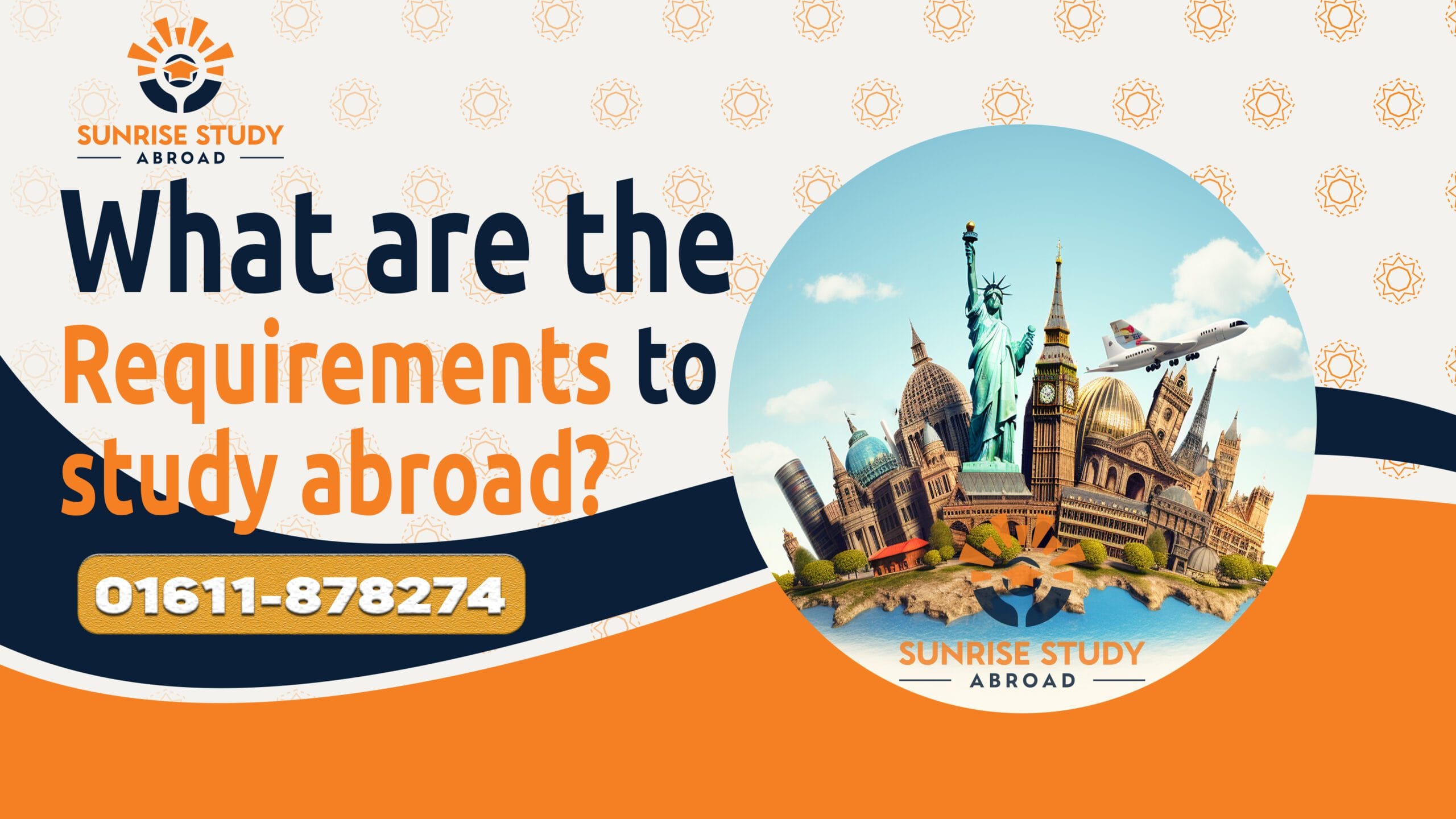What Are the Requirements to Study Abroad?
Studying abroad is a life-changing experience that offers academic excellence, cultural exposure, and career growth. However, the process involves several requirements that students must fulfill to secure admission to international universities. Below, we discuss the essential requirements needed to study abroad. What Are the Requirements to Study Abroad?
1. Academic Qualifications
The first and foremost requirement is meeting the academic qualifications of the university or college. These requirements vary based on the course and country:
- Undergraduate Programs: High school diploma or equivalent (A-levels, IB, or other qualifications)
- Postgraduate Programs: Bachelor’s degree from a recognized university
- PhD Programs: Master’s degree along with research experience and publications
2. Language Proficiency Tests
Most universities require proof of proficiency in the language of instruction, usually English. Some common tests include:
- IELTS (International English Language Testing System)
- TOEFL (Test of English as a Foreign Language)
- PTE (Pearson Test of English)
- Duolingo English Test (accepted by some universities)
- If the course is in another language, tests like DELF/DALF (French) or TestDaF (German) may be required. Sunrise Study Abroad in
3. Standardized Tests
Certain courses and countries require standardized admission tests. These include:
- SAT/ACT – Required for undergraduate admissions in the US
- GRE (Graduate Record Examination) – Required for many master’s and PhD programs
- GMAT (Graduate Management Admission Test) – Required for MBA programs
- MCAT (Medical College Admission Test) – Required for medical studies in the US and Canada
- LSAT (Law School Admission Test) – Required for law programs
What are the requirements to study abroad?
4. Statement of Purpose (SOP) & Essays
An SOP is a personal essay where students describe their academic background, career goals, and reasons for choosing a specific course and university. Some universities also require additional essays or motivation letters. What Are the Requirements to Study Abroad?
5. Letters of Recommendation (LORs)
Most universities require LORs from teachers, professors, or employers to assess a student’s academic and professional capabilities.
6. Financial Proof & Scholarships
Studying abroad can be expensive, and universities require proof of financial capability. Documents needed include:
- Bank Statements
- Sponsorship Letters
- Scholarship Proof (if applicable)
- Loan Approval Letter (if applicable)
Many universities also offer scholarships and financial aid to deserving students. These scholarships may be merit-based, need-based, or country-specific.
7. Student Visa & Immigration Documents
A student visa is mandatory to study in another country. The visa application process includes:
- Valid Passport
- Acceptance Letter from the University
- Visa Application Form
- Proof of Financial Stability
- Medical Tests (if required)
- Language Test Results
- Interview at the Consulate (if applicable)
8. Medical & Health Requirements
Many countries require students to have health insurance and medical check-ups before arrival. Some universities also mandate vaccination certificates. What Are the Requirements to Study Abroad?
9. Work Permissions & Part-Time Jobs
While studying, many students want to work part-time to support themselves. Each country has different rules regarding work permits for international students. For example:
- USA: Students can work 20 hours per week on campus
- UK: Students can work 20 hours per week during term time
- Canada: Students can work 20 hours per week off-campus
- Australia: Students can work 48 hours per fortnight
10. Cultural Adaptation & Pre-Departure Preparation
Adapting to a new culture can be challenging. It’s essential to:
- Learn about the country’s culture and laws
- Arrange accommodation (university dorms or private housing)
- Understand transportation and living expenses
- Connect with student support groups and communities
Conclusion
Studying abroad requires meticulous planning and fulfilling various academic, financial, and legal requirements. By preparing well in advance and understanding these requirements, students can successfully embark on their international academic journey.


